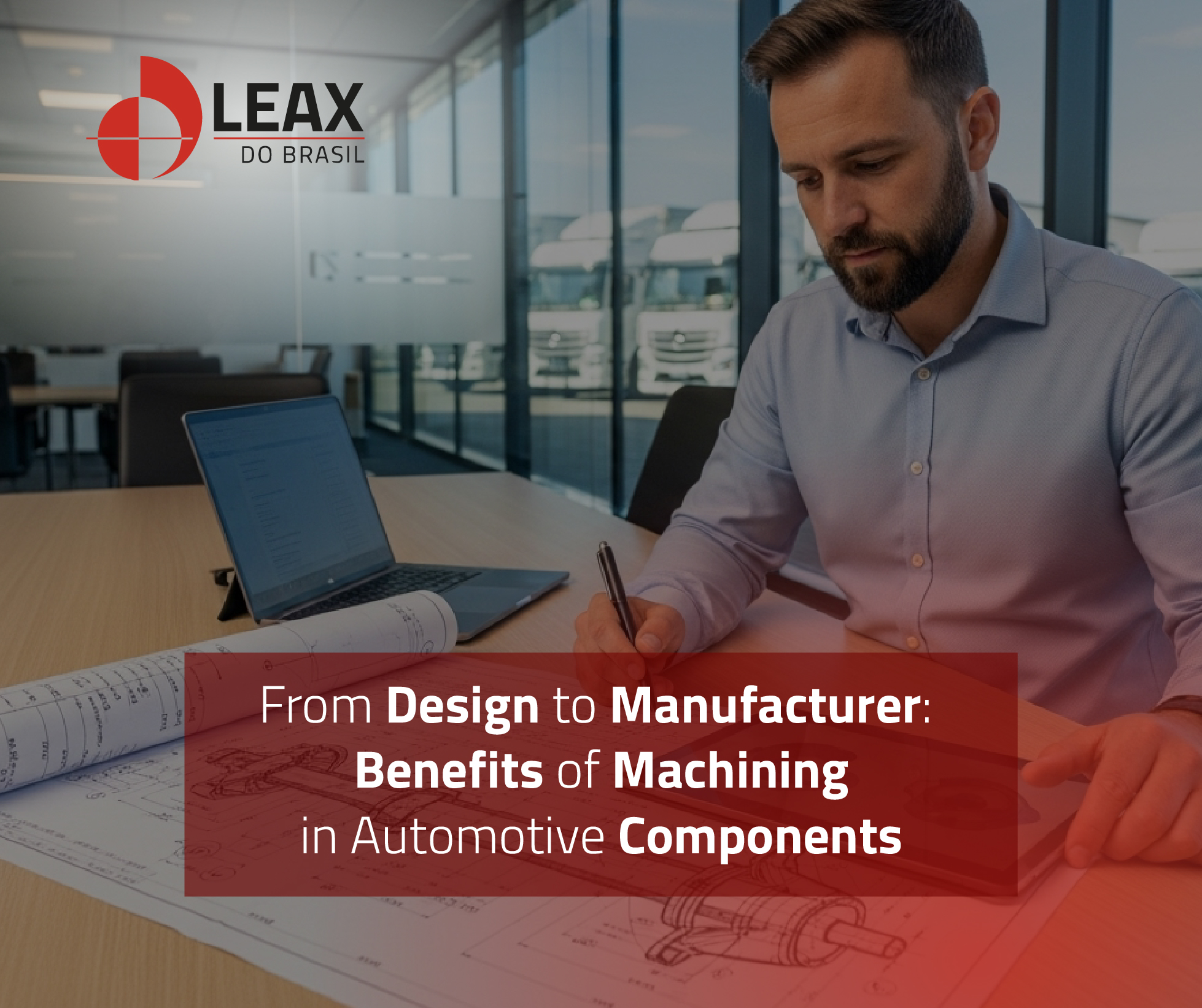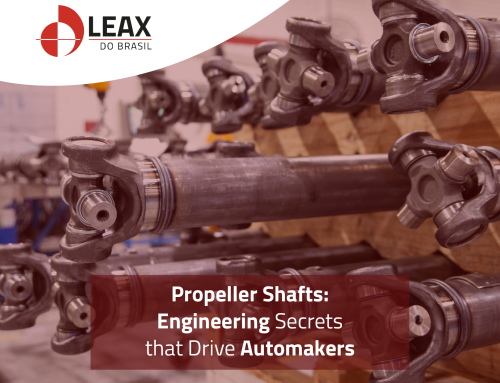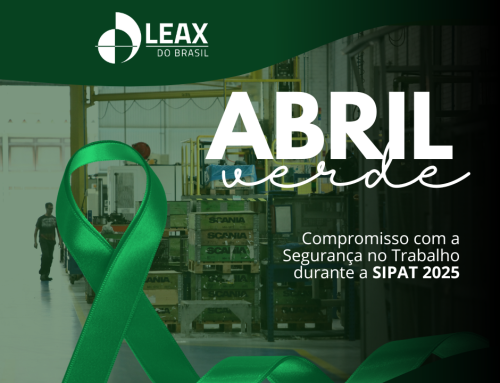Machining is a cornerstone of modern engineering, transforming raw metal blocks into automotive components that power heavy-duty, agricultural, and mining vehicles with precision and reliability. At Leax do Brasil, this process spans from the initial design to final assembly, ensuring that every part meets the industry’s rigorous standards. For vehicle manufacturers, understanding the benefits of machining is not merely a technical matter — it is a strategic approach that optimizes costs, enhances performance, and strengthens competitiveness in the market.
The machining process begins with design, where engineers define the exact specifications for each component. At Leax do Brasil, this stage is essential to ensure that every part is produced within tight tolerances, minimizing waste and guaranteeing perfect integration with the final vehicle. For OEMs, this translates into shorter assembly times, fewer reworks, and reduced recalls — factors that directly impact total production cost.
The precision of machining also contributes to durability and safety across automotive systems. A component manufactured within strict dimensional standards prevents failures and leaks, ensuring reliability in demanding applications such as mining, heavy transport, or agriculture.
Another major advantage of machining is its flexibility for customization. Unlike casting or forging methods, machining allows for specific adjustments — for example, developing gears optimized for energy efficiency in electric vehicles. At Leax do Brasil, we apply advanced machining technologies and strict dimensional control to develop components adapted to Brazilian market conditions, ensuring consistent performance even in harsh applications such as heavy transport and high-humidity environments. This flexibility is strategic for manufacturers that must serve diverse market segments — from urban trucks to off-road equipment. Moreover, machining enables weight reduction without compromising strength, contributing to lighter, more efficient vehicles aligned with global sustainability goals.
Reports from McKinsey indicate that advanced machining can reduce fuel consumption by up to 15% in heavy-duty vehicles — a figure that reinforces the importance of this process in driving efficiency and innovation across the automotive industry.
Durability is another pillar of machining. Machined parts undergo heat treatments, ensuring they withstand fatigue cycles in continuous operations. For a manufacturer, this means vehicles that last longer with fewer maintenance stops—a critical factor in sectors like mining, where each downtime hour is costly.
Operational efficiency is an undeniable advantage of machining. With CNC automation, Leax do Brasil produces components on a large scale with consistency, minimizing human errors and speeding up assembly lines. For manufacturers, this means shorter lead times and the ability to respond quickly to market demands, where lightweight machined gears are vital for increasing range. A Deloitte study shows that digitized machining can cut production costs by up to 30%, a competitive edge valued in B2B negotiations. At Leax, this efficiency is enhanced by local production, minimizing logistics.
Machining also fosters innovation. This opens doors to smarter vehicles, with components integrated into IoT systems for real-time monitoring. Machining enables rapid prototyping, shortening development cycles from months to weeks.
Leax do Brasil’s machining transforms design into highways, delivering benefits from precision to efficiency, ensuring manufacturers have components that drive success.
Read some of our articles:
Team Training: Ensuring Quality in Automotive Components
Efficient Supply Chain: The Power of Outsourcing with Leax
Questions? Make Contact: [email protected]








Leave A Comment